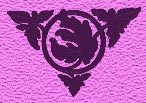

She had learned how amusing love in disguise could be from A Midsummer Night's Dream. She had learned how beautiful young love could be from Romeo and Juliet. She had learned how ruthlessly ravening a man's lust could be from Measure for Measure.
All this learning, far more accurately portrayed in the novel, actually has very little to do with Miss Grimsley's adventures. She knows Dream well enough to realize that there are no disguises in it (except Bottom's); she doesn't read Measure until well into the book because it is unsuitable--and unavailable--for young women, however clever. And her hero is far from "ravening." The publicity here, despite its inaccuracy in representing both the plays and the novel, pitches Shakespeare's plays as precisely the stuff of the romance novel, a pitch which does make sense through Shakespearean references in romance novels.
In fact, Ellen Grimsley, who yearns to be a student at Oxford, ends up taking embroidery and French at Miss Dimsdale's School rather than the geography and Shakespeare which she pursues. In order to save a decidedly non-scholarly brother at Oxford, she agrees to sneak into his tutorial on A Midsummer Night's Dream and write his paper for him. Aided by James Gatewood whom she take to be a charity student and provoked by a mysterious Shakespearean scholar, Lord Chesney (a.k.a. Gatewood), Ellen writes two research papers which her brother presents to considerable acclaim; one treats Dream and the other, more radically, Measure for Measure, which she must borrow from Gatewood because the material is inappropriate for young ladies. These essays earn her brother thoroughly undeserved praise for "his" work and land Ellen in considerable trouble because of the lengths she must go, often crossdressed, to gain access to the books and materials she needs.
As he goes off to deliver her third paper, a tour of the New World in The Tempest, her roommate at the school discovers her male clothes and is about to turn her in so Ellen defiantly goes to hear her work read herself. The results are not pleasant since she not only discovers that her charming friend Gatewood is actually the illustrious scholar Lord Chesney but must also disavow her own work publically, announcing to the assembled masses--who don't believe a woman could write such papers anyway--that she has only written out the fair copy for her brother. And, of course, she is summarily thrown out of the lecture and banned from Oxford campus. The only bright spot--aside from the fact that naturally Lord Chesney wants to marry her--has been her involvement with writing and thinking about Shakespeare's plays, finally if surreptitiously pursuing the scholarship she has yearned for and been denied.
The readings that Ellen offers of the plays which she writes about are only partially available in Kelly's novel, and only Measure for Measure seems to have any bearing on the plot, since Ellen is constantly called upon to rescue her various brothers. In fact, by the end of the novel, even though she has been steadfastly resisting the proposals offered by Gatewood, her youngest brother sneaks to see her and beg Gatewood's intervention with their social-climbing father so he can become a scholar.
Go to Introduction References by Play Return to Rewriting Shakespeare
